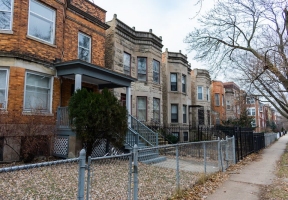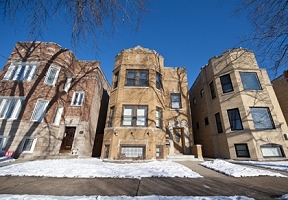

By: Ashmar Mandou
Mayor Lori E. Lightfoot and Department of Housing (DOH) Commissioner Marisa Novara announced the 20 community advocates who will make up the new Inclusionary Housing Task Force charged with recommending improvements to the Affordable Requirements Ordinance (ARO) and broader inclusionary housing policies. The ARO is one of the city’s key tools in the creation and equitable distribution of affordable housing across the city of Chicago. The Task Force will consider suggestions for improving the ARO’s efficacy towards that goal, as well as incorporating learnings from the Near North-Near West, Milwaukee Corridor, and Pilsen-Little Village ARO pilot areas.
The newly created Task Force is one of a series of initiatives by the Lightfoot administration designed to maximize transparency, accountability and equity in the process of updating the ARO and broader housing policies. Task Force membership was made available to all Chicago residents, civic organizations, community advocates, unions and housing developers. Nearly 200 people applied during the two-week application period in October. “This open process was designed to gather a diverse group of stakeholders who will help shape our policies and influence how and where affordable housing is created,” said Commissioner Novara. “This important step demonstrates our commitment to a more equitable, transparent and accountable government and our commitment to providing safe, affordable housing for all.”
The Inclusionary Housing Task Force will include three co-chairs: Juan Sebastian Arias of the Metropolitan Planning Council; Tony Smith of PNC Bank; and Stacie Young of Preservation Compact and three aldermanic co-chairs, Walter Burnett (27), Byron Sigcho-Lopez (25) and Harry Osterman (48). “The Inclusionary Housing Task Force has members that represent the diversity of our city and viewpoints on ways to create needed affordable housing in every community,” said Alderman Osterman. “I look forward to working closely with this dedicated group of Chicagoans on this important issue.”
The 20 members will meet for the first time in mid-December and thereafter once a month for four to six months with the goal of producing a revised ordinance by mid-2020. In addition, breakout working groups will meet to discuss technical questions and report back to the group. The Task Force will be charged with answering questions such as what percentages and levels of affordability are appropriate to require; whether these requirements and associated in-lieu fees, if applicable, should apply evenly across the city; how to treat off-site units; and more. In addition to the Task Force, DOH will start convening community-based Focus Groups to receive further feedback on inclusionary housing policy in January.









